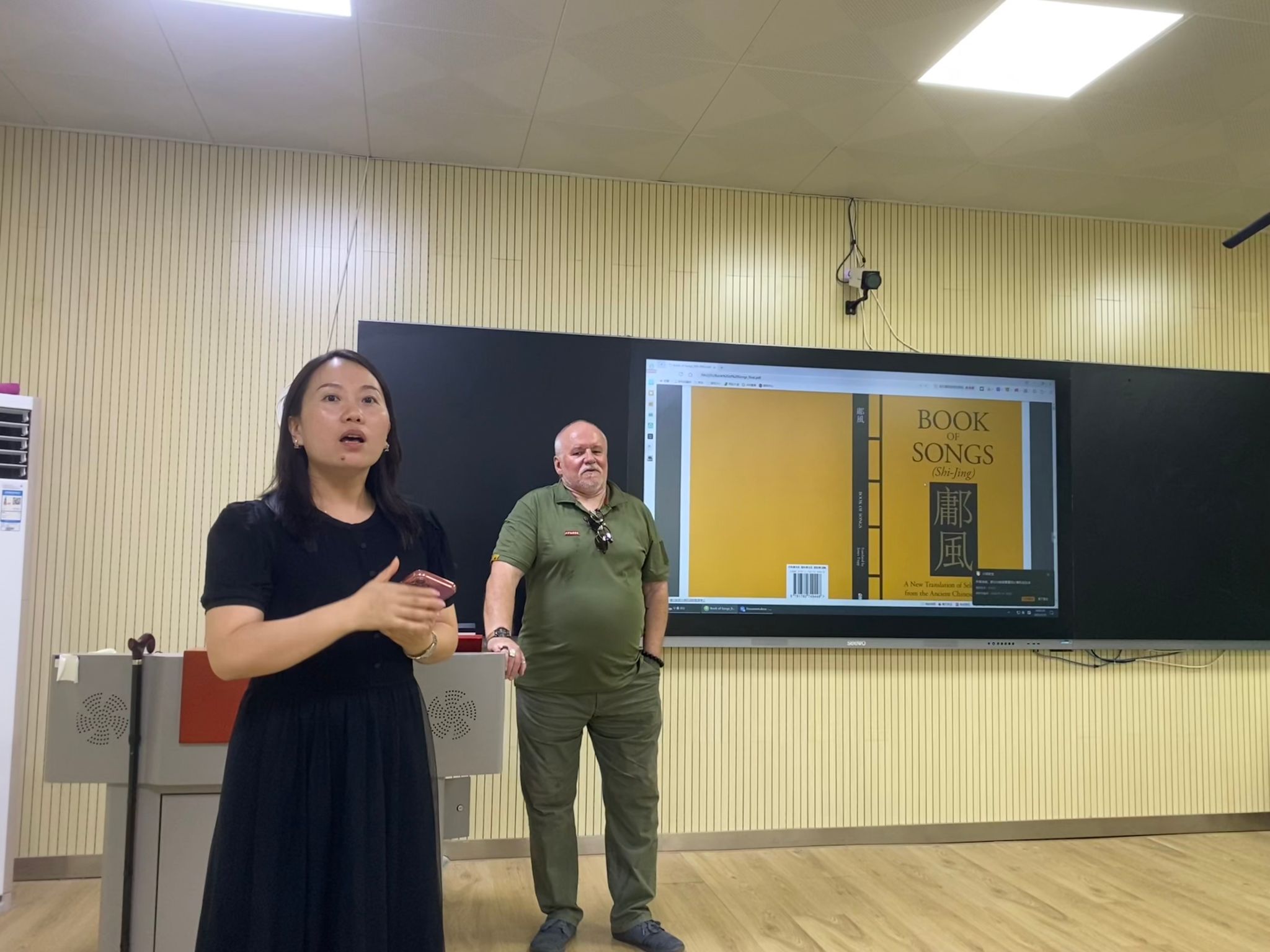On May 19, 2025, world-renowned sinologist and translator Professor James Trapp delivered a compelling academic lecture on the translation of Book of Songs (Shijing), offering a scholarly feast to an audience of students, scholars, and translation enthusiasts. With his deep academic grounding and extensive translation experience, Professor Trapp shared nuanced perspectives on how this ancient Chinese classic can be rendered meaningfully in the modern world.
The event began with a comprehensive introduction by Professor Luo Fei, Head of the Translation Department at the School of English Language and Culture, who outlined Professor Trapp’s academic journey. Professor Trapp has played a leading role in promoting Chinese language education through the Confucius Institute at the University of London and contributed significantly to the English translation of A Concise History of the CPC as well as the UNESCO World Heritage nomination project for Beijing’s Central Axis.
Over the course of a three-hour in-depth analysis, Professor Trapp approached Book of Songs with the rigor of an archaeologist, the sensitivity of a linguist, and the soul of a poet. Tracing the history of Book of Songs from its collection by Zhou Dynasty court officials, through Han Dynasty scholarly interpretations, to contemporary multi-dimensional readings, he emphasized: “A translator must become a traveler through time and space—one who can sense the warmth of bronze inscriptions and hear the rhythm of bamboo and silk manuscripts.”
Addressing the three major challenges in translating Book of Songs—recreating rhythm, decoding imagery, and philological verification of archaic terms—Professor Trapp used Guanju, the first poem in the anthology, as a detailed case study. In terms of rhythm, he compared James Legge’s formal yet prosaic rendition with Arthur Waley’s poetic but reordered translations, ultimately presenting his own approach of reconstructing Zhou-era lyrical cadence using English poetic meter.
When discussing the translation of culturally specific terms such as xingcai (荇菜) and jujiu (雎鸠), Professor Trapp shared his methodology of cross-referencing historical texts and consulting extensive academic sources to reach reasoned interpretations—highlighting the importance of meticulous lexical research in classical Chinese translation.
One of the most innovative contributions of the lecture was Professor Trapp’s original theory of Imagery Transformation. By constructing a three-dimensional mental model, he broke down “lush water plants” (cenci xingcai) into a sensory system combining visual (emerald green), auditory (flowing water), and tactile (rippling waves) perceptions. He then reconstructed these into an artistic equivalent in the target language, blending cognitive linguistics with literary aesthetics. This methodology introduces a novel paradigm for classical text translation.
As the seminar drew to a close, Professor Trapp offered heartfelt advice to young translators: “Translating Book of Songs is not merely decoding ancient symbols—it’s about building bridges where human emotions resonate.” Through his “Imagery Transformation” approach, Professor Trapp not only proposed a new methodology for translating Book of Songs, but also demonstrated how precise and poetic translation of classical Chinese texts can preserve the essence of Chinese civilization while enabling meaningful dialogue across cultures. His work provides renewed momentum for the global dissemination of Chinese classical heritage.

Translated by Ma Xingchi | Reviewed by Wang Xiaojuan